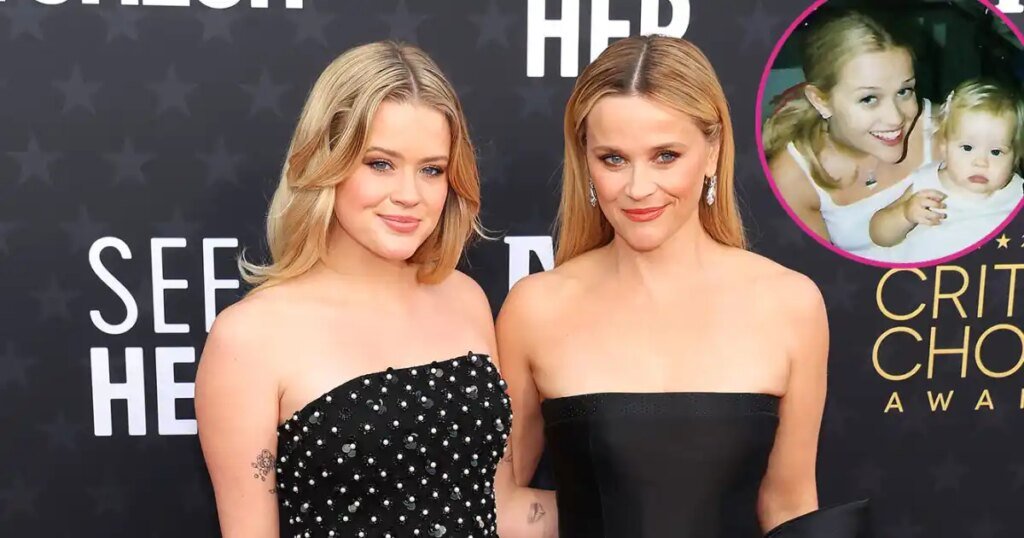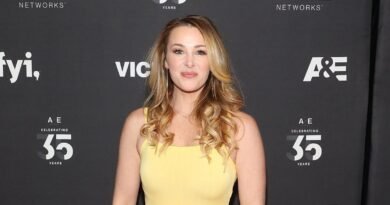
Reese Witherspoon: ‘I Cried Constantly’ After Becoming a Mom to Ava
Reese Witherspoon is sharing her postpartum experience as a young mother following the birth of her daughter, Ava Phillippe.
“It was truly challenging,” Witherspoon, 49, reflected on her battle with depression in a Harper’s Bazaar interview published on Sunday, November 2. “In the initial six months, I experienced a mix of happiness and sadness. I cried constantly, struggled with sleepless nights, and felt utterly drained. The hormonal changes were unexpected; I experienced a drop immediately after childbirth and again when I stopped nursing six months later.”
The actress added, “Everyone has their opinions. Being a young mother is tough, especially with people telling you how to act, how to give birth, how to nurse, and how to feed your baby. It can be overwhelming.”
Witherspoon shares her daughter Ava, now 26, and son Deacon, 21, with ex-husband Ryan Phillippe, and her son Tennessee, 13, with ex-husband Jim Toth.
Becoming a mother in her early 20s was a challenge, and ultimately, Witherspoon was advised by a friend to seek help. “I had the resources to access a doctor, a mental health specialist, but many individuals struggle alone and conceal their difficulties,” she explained to the publication.
As a parent, Witherspoon promotes open conversations with her children about mental health, influenced by her own mother’s approach.
“My mother spoke about mental health in a way that made it approachable; she was almost clinical. As a teenager, she would ask me directly whether I was sexually active and about birth control. I don’t shy away from tough subjects. If something’s on my mind, I’ll push boundaries and ask difficult questions to my children,” she recounted.
The Morning Show actress has been open about her postpartum challenges over the years, previously mentioning on Jameela Jamil‘s “I Weigh” podcast that each of her children’s births brought different experiences.
“With one child, my postpartum was mild, while with another, it was severe, requiring heavy medication as I wasn’t thinking clearly at all. And with one, I experienced no postpartum symptoms,” Witherspoon shared in 2020.
She acknowledged her lack of preparation for the impact birth would have on her health: “The hormonal rollercoaster during weaning was never explained to me. At 23, when I had my first baby, no one informed me that weaning would send my hormones crashing. I felt more depressed than ever — it was frightening.”
At that time, Witherspoon “white-knuckled” through the struggle. “I consistently reached out to my doctors for insights. There’s not enough research on women’s health and the hormonal changes we experience, which, I believe, are not taken seriously enough,” she continued. “I hold deep compassion for women facing similar situations; postpartum is very real.”
Last month, Witherspoon reflected on how her early parenthood affected her professional life, admitting there was some “naïveté” in managing her work and family balance.
“There were roles I couldn’t accept,” she stated on The New York Times‘ “The Interview” podcast. “I had to find an immediate balance between family and career, motherhood and acting. The success of Legally Blonde was intimidating because I didn’t have to fight for roles; they were offered to me. This made it even scarier since I wasn’t choosing what I wanted to pursue; it was more about what I wouldn’t do.”
Witherspoon noted that she was “frequently advised” against portraying mothers in films. “But I am a mother,” she remarked. “It was frustrating, as our industry often desexualizes women, making it seem impossible to be a movie star while playing a mom. Thankfully, that perspective is shifting.”



